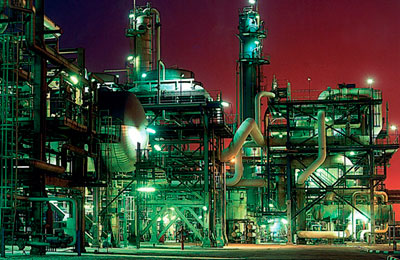
Saudi petchem sector ‘well-positioned’ against challenges
Jeddah, August 6, 2014
The Saudi petrochemical sector remains well positioned regionally and is driven globally by a positive demand outlook, according to an NCB report.
The latest Saudi Petrochemical Sector report from the NCB Economics Department, titled “Saudi Well-Positioned Petrochemical Sector Against Rising Future Challenges,” pointed out that the recent discovery of North American shale gas and oil is likely to have an effect on the Saudi petrochemical sector in its trajectory towards remaining upstream or moving downstream.
The kingdom has maintained its leading position as the region’s largest petrochemical producer with an annual 86.4 million tonnes of capacity, it said.
The expansion in ethylene production capacity has resulted in Saudi Arabia being the third largest producer worldwide, accounting for 11 per cent of global ethylene capacity.
Meanwhile, the Saudi petrochemicals industry is not expected to see a massive rise in overall petrochemicals capacities until 2016, when the Sadara petrochemicals complex is due to come on-stream.
The banks in the kingdom have been strongly capitalised and have minimal Basel 3 implications and are able to lend with relative ease to projects in the petrochemical sector.
However, banks have limited their exposure when financing mega-projects to the SR3 billion ($799.8 million) to SR4 billion range to account for funding challenges that include concentration risk, and the legal lending limit of not exceeding 25 per cent of their capital to a single borrower.
ECA’s have grown in popularity due to their experience and flexibility in financing complex projects given their focus on the due diligence and procurement phase of a project.
Sukuk issuances have been on the rise as they allow for clearer identification of construction risk, certainty of execution and a more robust disclosure and due diligence process.
The challenges include the rising prices of exploration and production of non-associated gas, as well as potentially rising petrochemical capacity from global players, which will act to squeeze profit margins.
The kingdom’s largest importer of petrochemicals, China is likely to witness an increase in both its coal-to-olefin and methanol-to-olefin technology, which may decelerate import demand. - TradeArabia News Service







